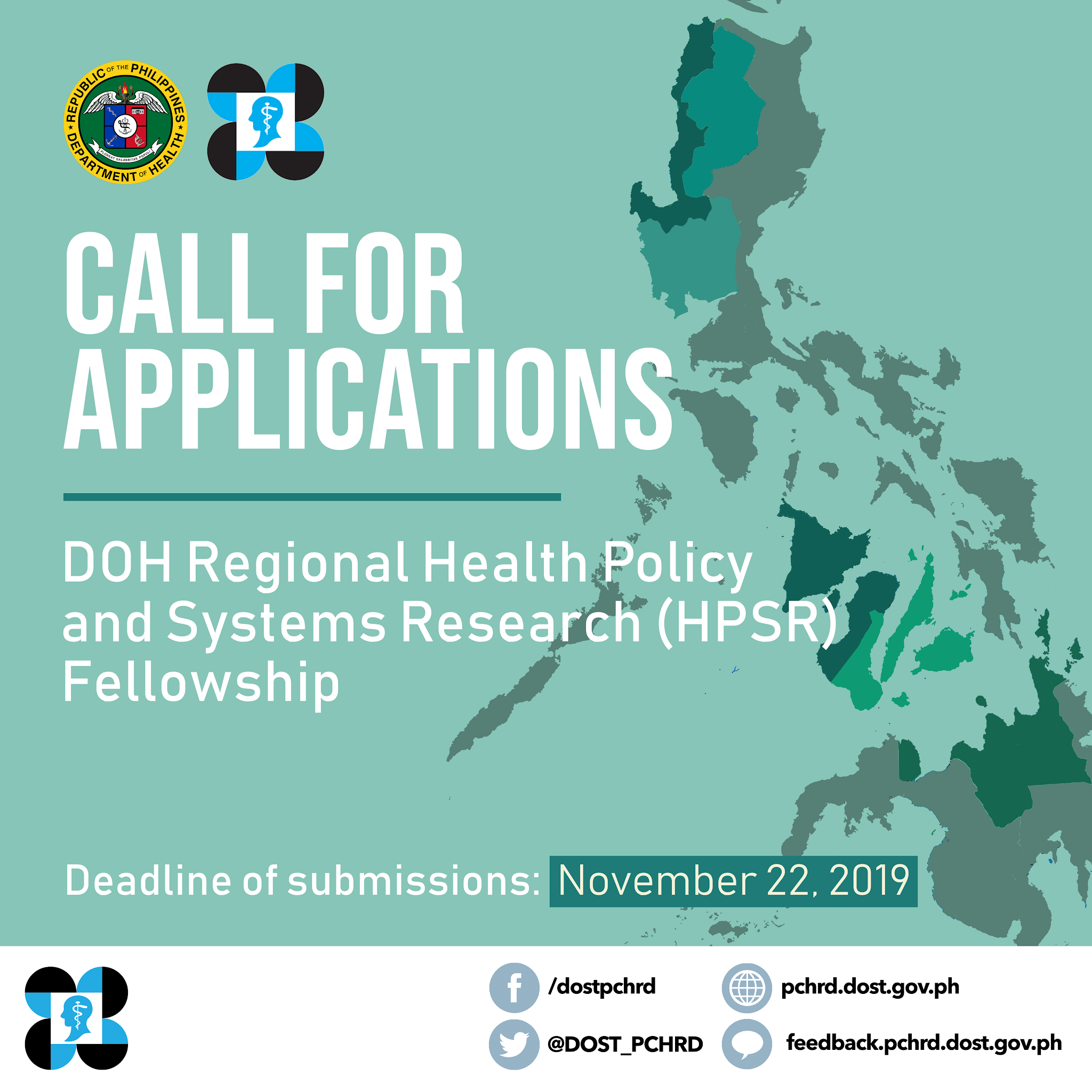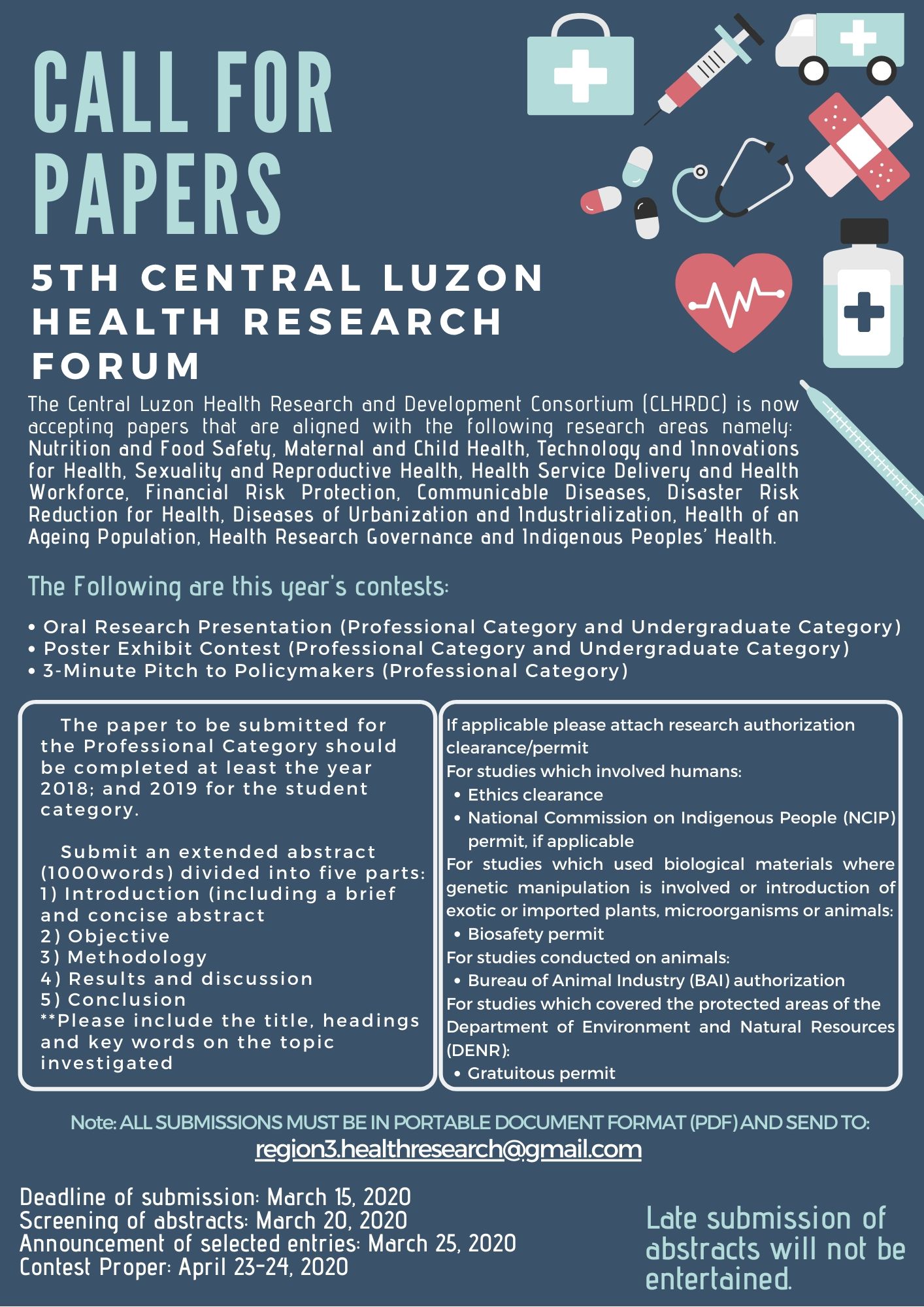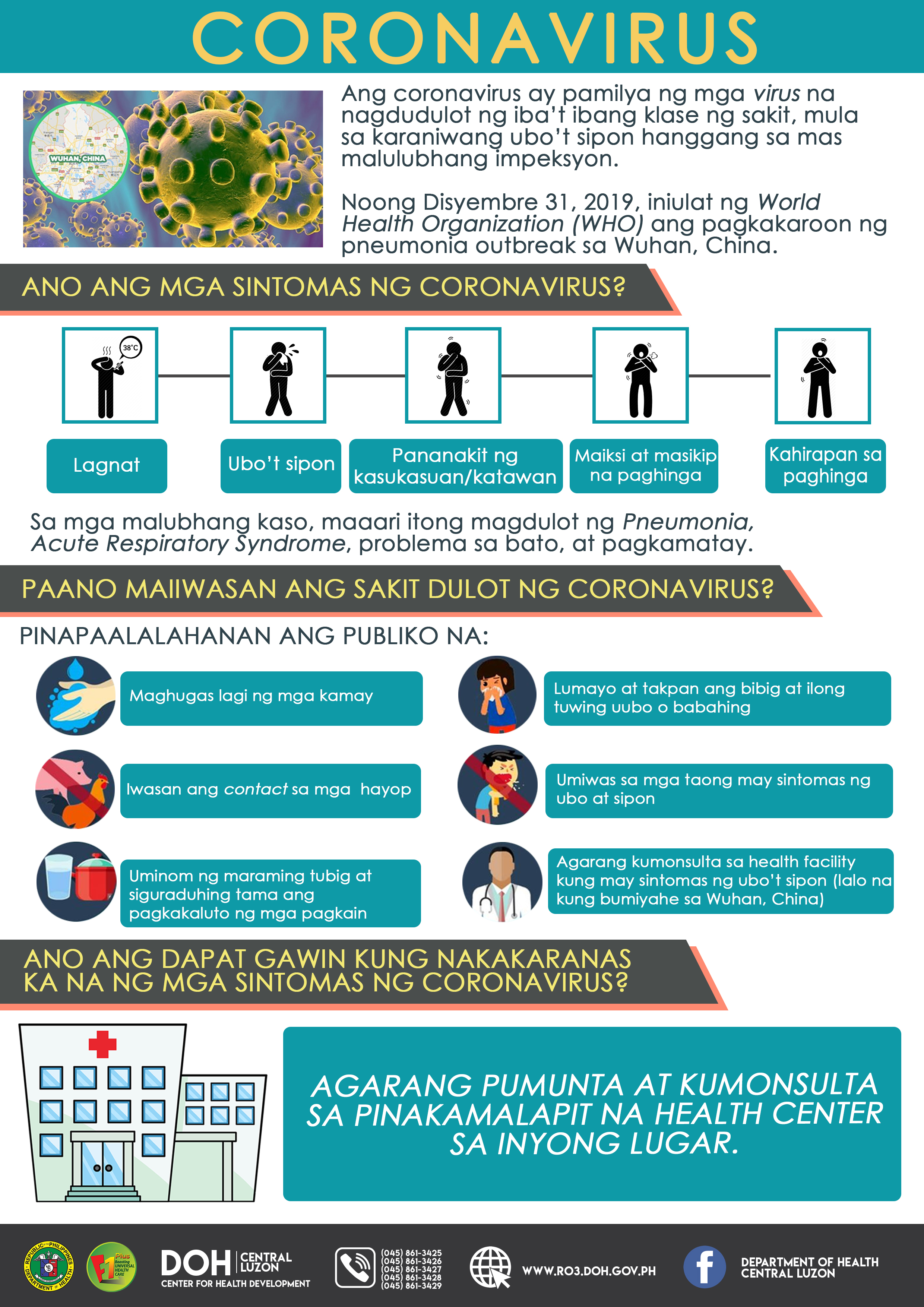- Details
- Category: Call for Proposals
One of the strategic objectives of Philippine National Health Research System (PNHRS) for 2019-2022 is to strengthen the capacity of the network to support health research. To address this objective, the PNHRS Capacity Building Committee (CBC) created the Collaborative Research and Capacity Building Initiative which will integrate the capacity building efforts of the implementing agencies, regional consortia, and member institutions. Harmonizing the efforts in research capacity will result in better use of resources which will contribute to the development of evidence-informed health decisions, programs, and policies.
The Collaborative Research and Capacity Building Initiative has the following objectives:
- Promote partnership and collaboration among researchers/research and development institutions in health research capacity building;
- Harmonize R&D capacity building efforts through interregional and interdisciplinary collaborative research;
- Optimize resources for health R&D capacity building programs for researchers and research and development institutions; and
- Develop more relevant and quality health researches aligned with National Unified Health Research Agenda (NUHRA) and Regional Unified Health Research Agenda.
Priority Areas for Funding
For its initial phase, the initiative accepts proposals on control and prevention of human immunodeficiency virus (HIV) and schistosomiasis.
The program must have at least 2-3 of the following research project components: (1) clinical/epidemiology/diagnostics, (2) use of ICT, (3) health social science, and (4) health policy and systems research.
Minimum Requirements for the Proposals
All proposals submitted for funding must comply with the following requirements:
- Must involve the Research and Development Institution’s (RDI) or Higher Education Institutions’ (HEIs) faculty/researcher and early career scientists
- Must include a mechanism for sharing of resources (expertise, data/information, facilities) for research
- Must be collaborative, interregional, and interdisciplinary, involving 2-3 RDIs/HEIs through letter of support or willingness to collaborate
- Must include plans for research dissemination, utilization, and translation
- Duration: 1-2 years (PNHRS implementing agencies and counterpart implementing RDIs/non-RDIs shall provide funding for approved proposals for 1-2 years, subject to monitoring and evaluation and annual review)
Who may submit
Principal investigators must be a Filipino with at least a Master’s Degree in a relevant field and employed in universities/colleges, research agencies/institutes, hospitals, and other health related agencies who are members of the Regional Health Research and Development Consortia (RHRDC) are eligible to apply for the research grant.
How to submit
Interested lead proponents must submit their capsule proposals using the DOST-PCHRD forms. Research proposals submitted must be duly endorsed by the RHRDC concerned.
The RHRDC shall submit priority capsule proposal to:
The Executive Director
Philippine Council for Health Research and Development
Department of Science and Technology
Saliksik Building, DOST Compound, Gen. Santos Ave., Bicutan Taguig City 1631 Philippines
Successful proponents will be invited to join a write-shop for the development of the full proposal.
Deadline for submission of capsule proposals is on or before April 30, 2020
- Details
- Category: Latest News
- Details
- Category: Call for Proposals
With the continued commitment of the Department of Health (DOH) in training the next generation of health sector leaders, researchers, policy analysis and program managers, the DOH partnered with Philippine Council for Health Research and Development (PCHRD) to implement the DOH Research Fellowship Program. Aligned with the Advancing Health through Evidence Assisted Decisions (AHEAD) strategy to (1) to increase individual, institutional and sectoral research capacity and (2) to position the Philippines as a global knowledge contributor, the Program aims to establish a cadre of young professionals with the appropriate knowledge, skills and attitude to appraise and conduct high quality health policy and systems research that are of policy significance.
With the passing of the Universal Health Care Act, there is a need to further develop a cadre of policy system researchers, technical experts and managers in order to strengthen internal analytic capacity in the DOH and to build health policy and systems research capacity within the sector. In line with this, the DOH Fellowship Program will be expanded in order to capacitate young professionals deployed to the regional Centers for Health Development (CHDs) all over the country.
The DOH Regional Research Fellowship Program is a 1-year term fellowship program intended for early career professionals who are considering a career in research. The Regional Research Fellows will be fully immersed in technical work at DOH regional CHDs and, in turn, will be capacitated in health policy, research and health systems management.
Objective:
To produce a cadre of young professionals in the field of health systems research, policy, data analysis and health systems management at the DOH CHD level
Scope of Work:
- Identify research gaps in health policy and systems
- Develop and design a health policy and systems research addressing identified research gaps/ health policy and systems issues
- Collect and analyze data using a range of quantitative and qualitative techniques
- Systematically search, appraise and synthesize research evidence
- Communicate evidence to influence policy-making and legislation through the development of policy briefs, policy notes and other knowledge products as appropriate
- Apply research evidence in day-to-day practice to improve health policy and systems
- Participate in research capacity building activities
- Comply with DOH standards and protocols
Deliverables*:
*meant to be completed individually by the fellow, unless otherwise indicated
- One (1) individual research paper (can be done collaboratively with CHD staff, but fellow must be the principal investigator, and author)
- At least one (1) research brief
- At least five (5) technical reports/documents (such as, but not limited to position papers, policy notes, technical presentations, meeting reports, aide memoires, terms of reference and the like)
- Timely submission of monthly accomplishment report approved by the DOH management
- Other policy and research related technical tasks as may be required
Preferred Qualifications:
- At least 20 years old
- Residing in regions I (Ilocos), III (Central Luzon), VI (Western Visayas), VII (Central Visayas), X (Northern Mindanao), CAR (Cordillera)
- Graduate of bachelor’s degree in any health-related courses*
*Fresh graduates are welcome to apply.
- Fluent in English and Filipino
- Knowledge/fluency of different dialects in the region is an advantage
- Has knowledge in research and analytical writing
- Possesses skills in planning, organizing and managing research
- Has proficient computer skills, particularly for data management, technical report-writing and presentation preparation
Duration:
One year, non-renewable
Deployment:
Centers for Health Development (CHDs) Units/Divisions in regions I, III, VI, VII, X, and CAR
Compensation:
PhP 30,000.00/ month
Expression of Interest:
Qualified applicants may file their application together with the following documents at This email address is being protected from spambots. You need JavaScript enabled to view it. and This email address is being protected from spambots. You need JavaScript enabled to view it.:
- Cover letter addressed to:
JAIME C. MONTOYA, MD, MSc, PhD, CESO III
Executive Director
Philippine Council for Health Research and Development
Department of Science and Technology
- Curriculum Vitae
- Sample research paper/technical report
Deadline of submission is on or before November 22, 2019.
For queries, contact Ms. Juanita R. Valeza at 8-651-7800 local 1326/1328 or Ms. Ian Hannah C. Gozun at (02) 8-837-7537 local 405.











